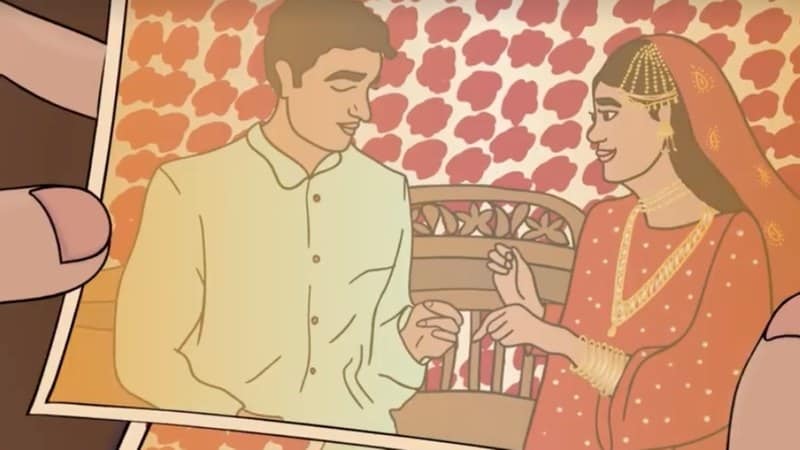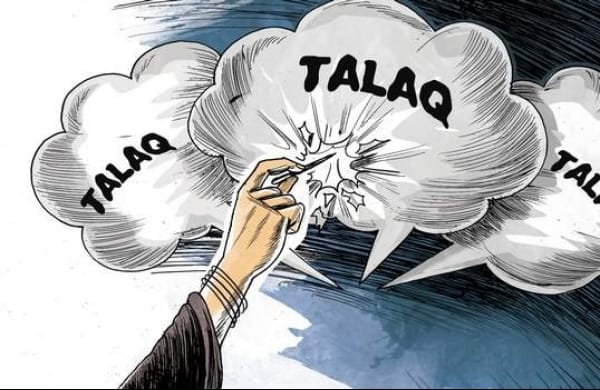Nelson Mandela perfectly captured the essence of human rights when he said, “To deny people their human rights is to challenge their very humanity.” Unfortunately, Pakistan – a country founded on the basis of ensuring its citizens rights – now stands amongst countries with a terrible pattern of human rights violations. Women, children and religious minorities are the frequent targets of this abuse. One main reason why a majority of our population pays no heed to human rights is lack of awareness. Some are oblivious of their basic rights, while others are unaware of the consequences of violating them. To understand the complex yet extremely important details and rules of human rights, we invited Daanika Kamal, a human rights legal specialist and mental health advocate, to Mashion HQ. She shared some valuable insights with us but if you missed the Q&A sessions, here’s all you need to know!

1. Women Rights In Pakistan
Violence against women has always been a burning issue in Pakistan. Women in Pakistan continuously face rape, honour killings, domestic violence, acid attacks and forced marriages. Despite women being granted equal rights by the country’s law, the state of their rights is hopeless. According to Daanika, “We have equal rights in education, inheritance and marriage etc. The problem, however, arises when it comes to the implementation. If you look at global rankings, in 2018 we were second last in terms of gender equality.”
2. The Rights Granted To Women In The Nikahnama
The Nikahnama is one of the most important documents a person signs in their lifetime. Yet many women in our society are told to sign it without thoroughly reading it. The sole purpose of this is to deprive them of their basic rights in marriage. Countless women are completely unaware of the rights the nikahnama grants them. According to our expert, two of the rights given to women in the nikahnama are:
- The right to divorce (it is by default and the one that’s usually scratched out)
- The husband cannot marry a second time without his wife’s consent.
“There’s also a section which gives you the opportunity to add any other provision that you may want for the marriage. So if you don’t want to be stopped from working after marriage, you can add that. This section is usually left blank,” she adds.

3. Rights Of Children Facing Gender Discrimination By Parents
Discrimination on the basis of gender is not a hidden secret in patriarchal societies like ours. Sons are given more preference than daughters in many households. It’s quite common for a son to pursue further studies, while daughters aren’t allowed to study after completing their basic education. But this isn’t just a family matter; if the girl wants, she can take this to court. According to Daanika, “If parents deny their daughter her share of inheritance, force her to marry against her will or stop her from working or getting an education, legal remedies are available.”
4. Difference Between Khula And Divorce
Khula and divorce are both aimed at separation, but have different procedures. Since many think there’s no difference between the two, the section of divorce rights is usually cut out in the nikahnama and the girl is deprived of her right to divorce. Daanika explains the visible difference between khula and divorce and says, “Khula is what a woman is allowed to get on her own will but she has to give up few of her rights, such as mehr and maintenance. Whereas when you have the right to divorce in the nikahnama, you have the same powers as your husband and don’t have to give up any of your rights. The latter is a much faster process.”

5. Laws Against Domestic Violence
Domestic violence has become so common in Pakistan that it’s sometimes overlooked or excused. While physical abuse may be noticed, psychological is hardly ever considered a crime. Since it happens within homes, many consider it to be a family matter and turn a blind eye. But the increasing cases of domestic violence in recent times have led the government to take serious action and introduce laws to protect women from such heinous acts. According to our expert, all provinces of Pakistan have laws against domestic violence. “We have the anti-domestic violence bill at the federal level and the Women Protection Bill in Punjab. As of last year, the three provinces – Sindh, Baluchistan and KPK – have also established domestic violence bills.”
6. Understanding Harassment
As much as harassment is prevalent today, it’s also very misunderstood. From sexual to cyber, women around the world encounter different types of harassment every day. To report it and make their case strong, they must know the type and form that they have faced. According to Daanika, there are many different forms of harassment. “Harassment can be verbal, physical or cyber. The way I define harassment is that it happens more than once. The first time something happens you have to express your discomfort for that act.”









What do you think?
You must be logged in to post a comment.